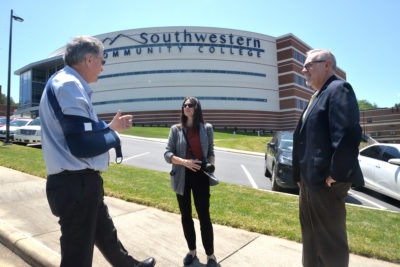

“Look around,” said Don Tomas, the president of Southwestern Community College. “Our topography is up and down, vertical not horizontal, so there is not a tremendous amount of open space where manufacturing can come in and put in a plant that would bring in a 100-150 jobs.”
Southwestern Community College (SCC) is located in Sylva in Jackson County in western North Carolina. The community college also serves Swain and Macon counties and the Qualla boundary.
If you haven’t been there, it’s in the mountains.
While you may not see new plants or industries dotting the hillsides, if you take a walk down Main Street in Sylva, you do see small business after small business, like Baxley’s Chocolates and Innovation Brewing.
Visit Innovation Brewing with me to see and hear how this small business strives to be community first. And visit yourself to taste! It is worth the drive, I promise.
“Small businesses are the driving force of all of our local economies in this region,” said Thom Brooks, executive vice president for instruction and student services at SCC. “Here, to get 50 jobs, we may need to work with 25, 30, 40 businesses, one and two jobs at a time.”
Much of the work to support those small business happens through the Small Business Center at SCC.
An economic impact study of SCC found it has an annual economic impact of $104.1 million, including $18.4 million in operations spending, $6.6 million in student spending, and $76.3 million in alumni impact.
When the study looked at the impact of the Small Business Center, it found:
SCC is also a vital asset to regional employers. Specifically, the college adds highly-trained human capital to the regional workforce and provides training for local businesses at the Small Business Center. SCC’s Small Business Center is designed to increase the success of the small businesses in the region. The Center provides quality assistance to businesses in the form of workshops, seminars, confidential counseling, information resources, and more. In turn, this helps strengthen the regional labor market through increased job creation and retention.
Making small businesses a priority
Tomas became president in July 2011, and he kicked off a strategic planning process. He knew SCC would need to support and highlight small businesses from the first conversations he had with organizations in the community. It’s been a priority for SCC ever since, and you can see the impact in the numbers.
In 2012-13, SCC’s Small Business Center helped create 14 jobs, retain 2 jobs, and start 3 businesses.
Year by year, those numbers started going up. By 2016-17, the Center helped create 241 jobs, retain 69 jobs, and start 27 businesses.
In 2019-20, with the onset of the pandemic, the Center helped create 132 jobs, retain upwards of 702 jobs, and start 19 businesses.
In total, between 2012-13 when SCC decided to make small businesses a priority and the pandemic, the Center helped create 1,261 jobs, retain more than 1,118 jobs, and 195 business were started in total. Over that same time frame, capital formation totaled $8.4 million, including loans, investments, and other income the Center helped small business owners obtain.
Here is the current count on business starts:
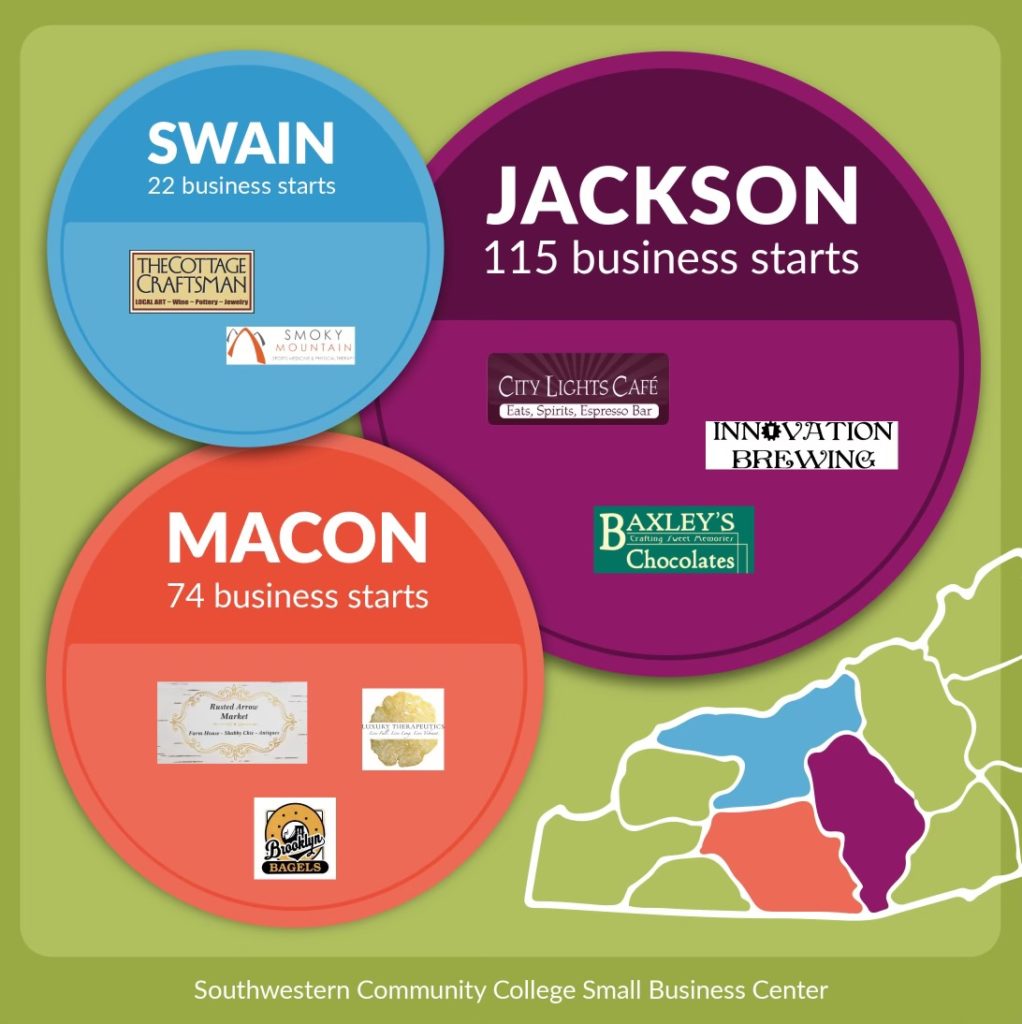

Baxley’s Chocolates
Baxley’s Chocolates is located at 546 West Main Street in Sylva. It is one of the many small businesses who have worked with SCC’s Small Business Center.
This father-daughter business is owned and run by Steve Baxley and Lauren Baxley. Many of the recipes were inspired by Russell Baxley, Steve’ father and a food scientist who worked on incorporating peanuts into new foods. For more than 25 years before the store opened, Steve and his wife, Beth, made chocolates in their kitchen which they gave, he said, to family and friends. Beth now serves as vice president of the family business.
Baxley’s chocolates are made by hand with high-quality ingredients in the smallest of batches.
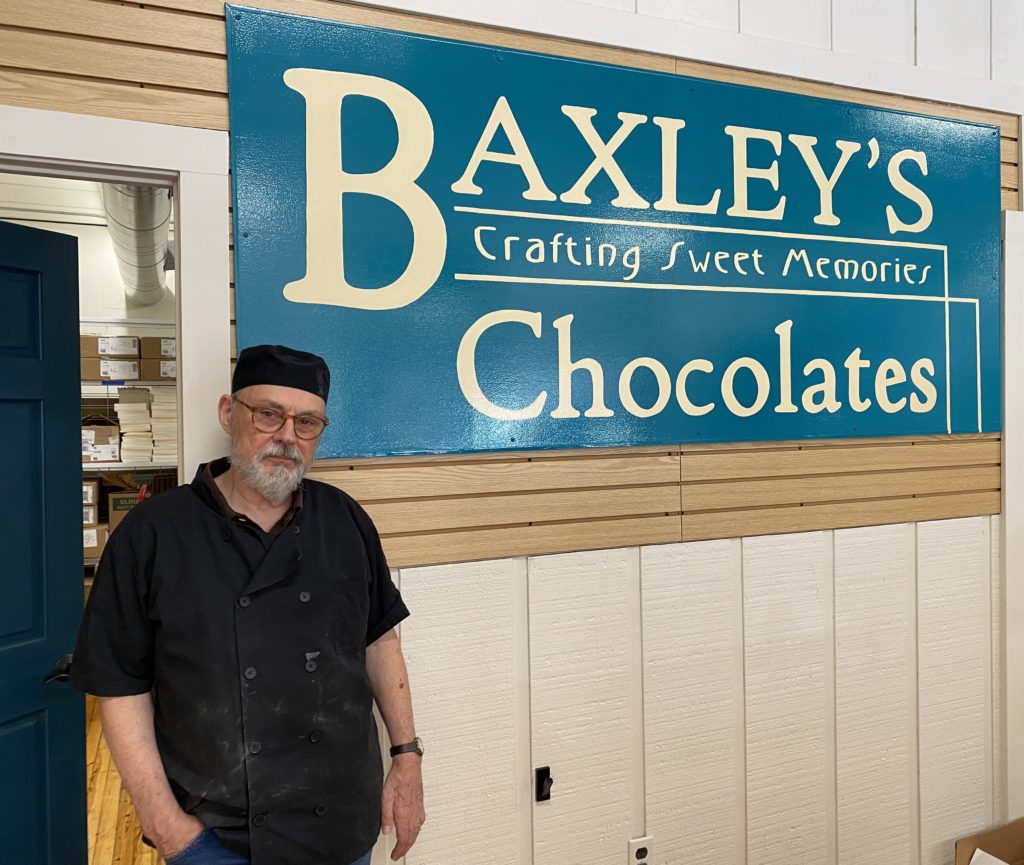

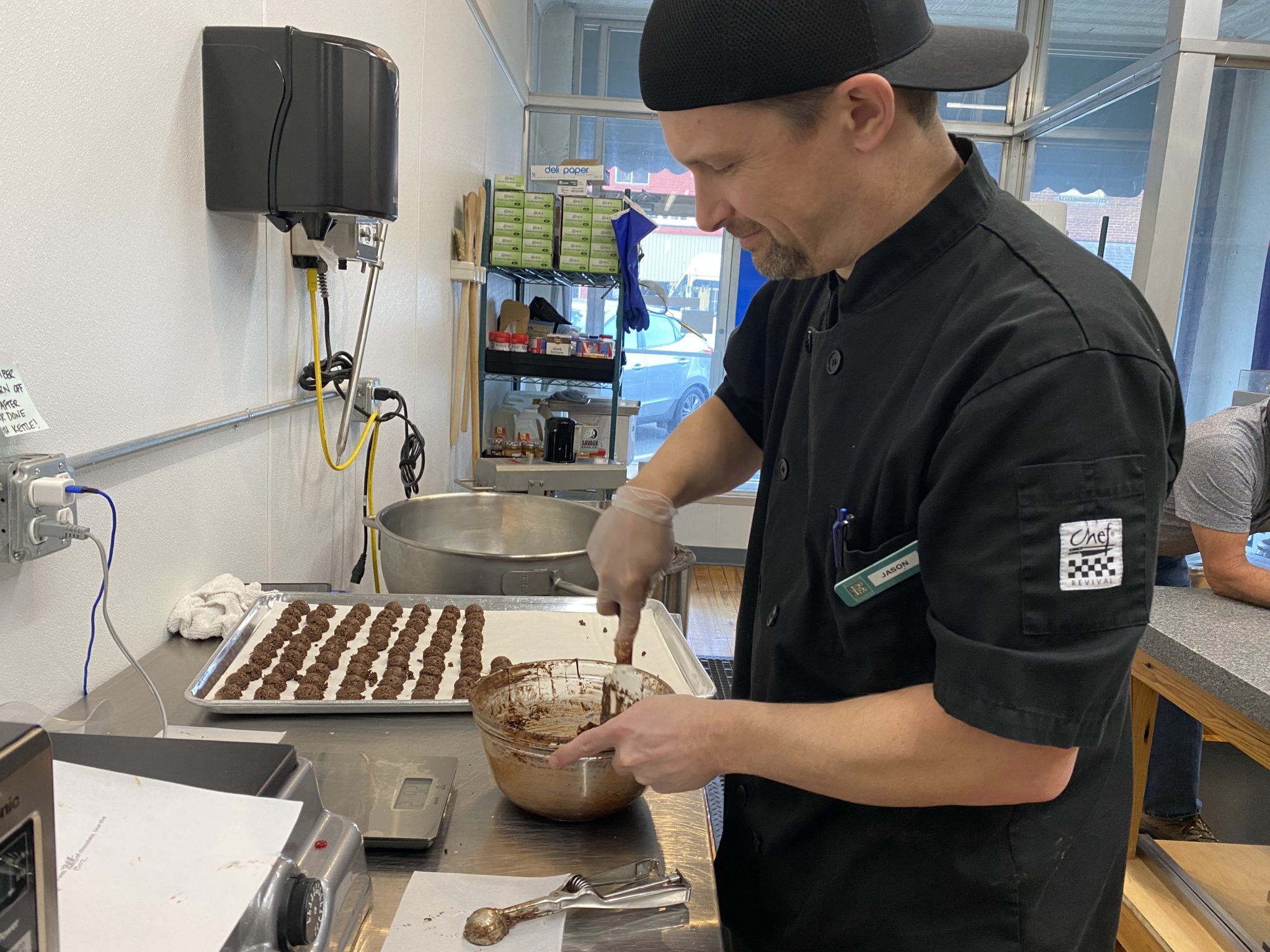

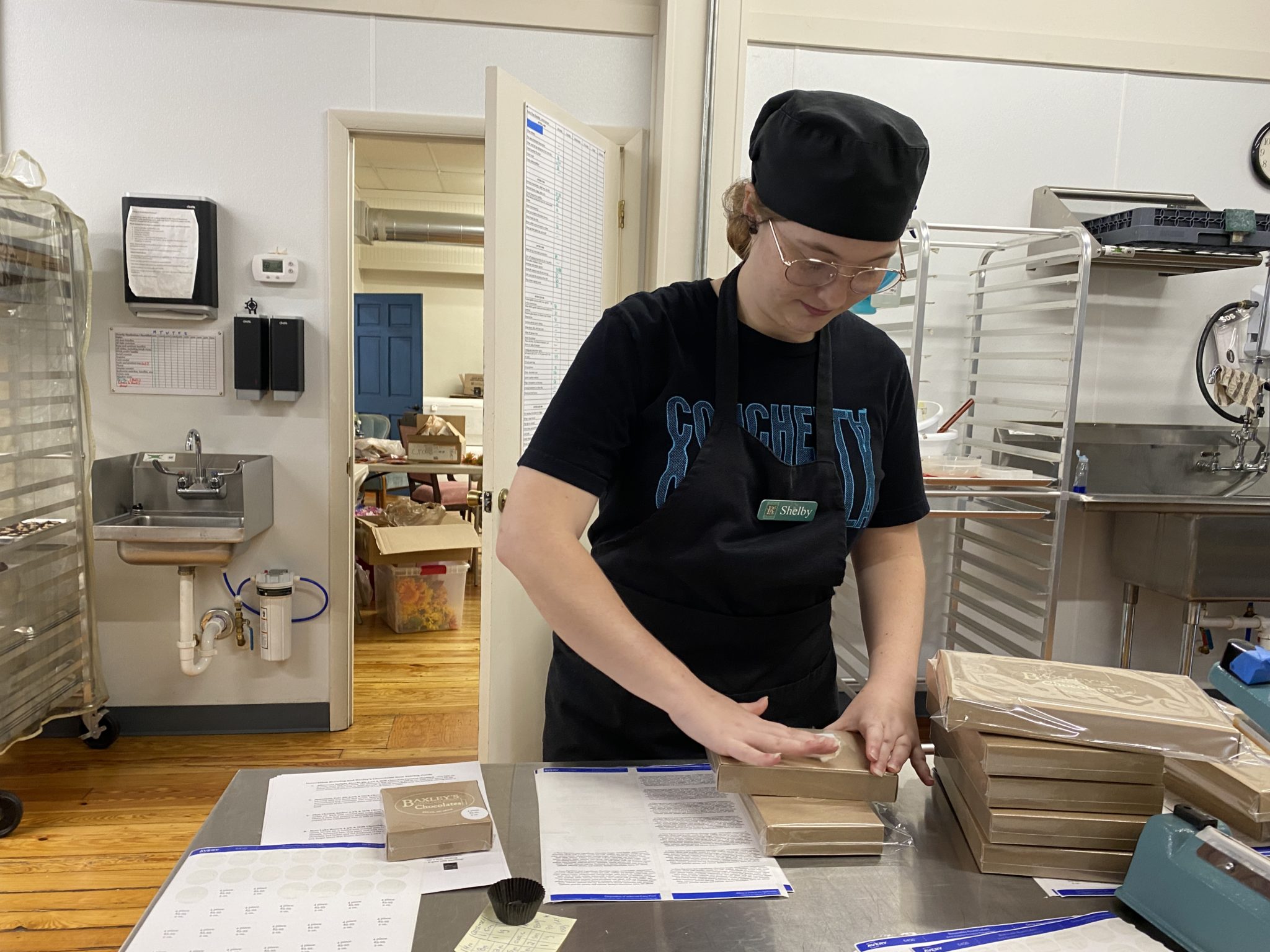

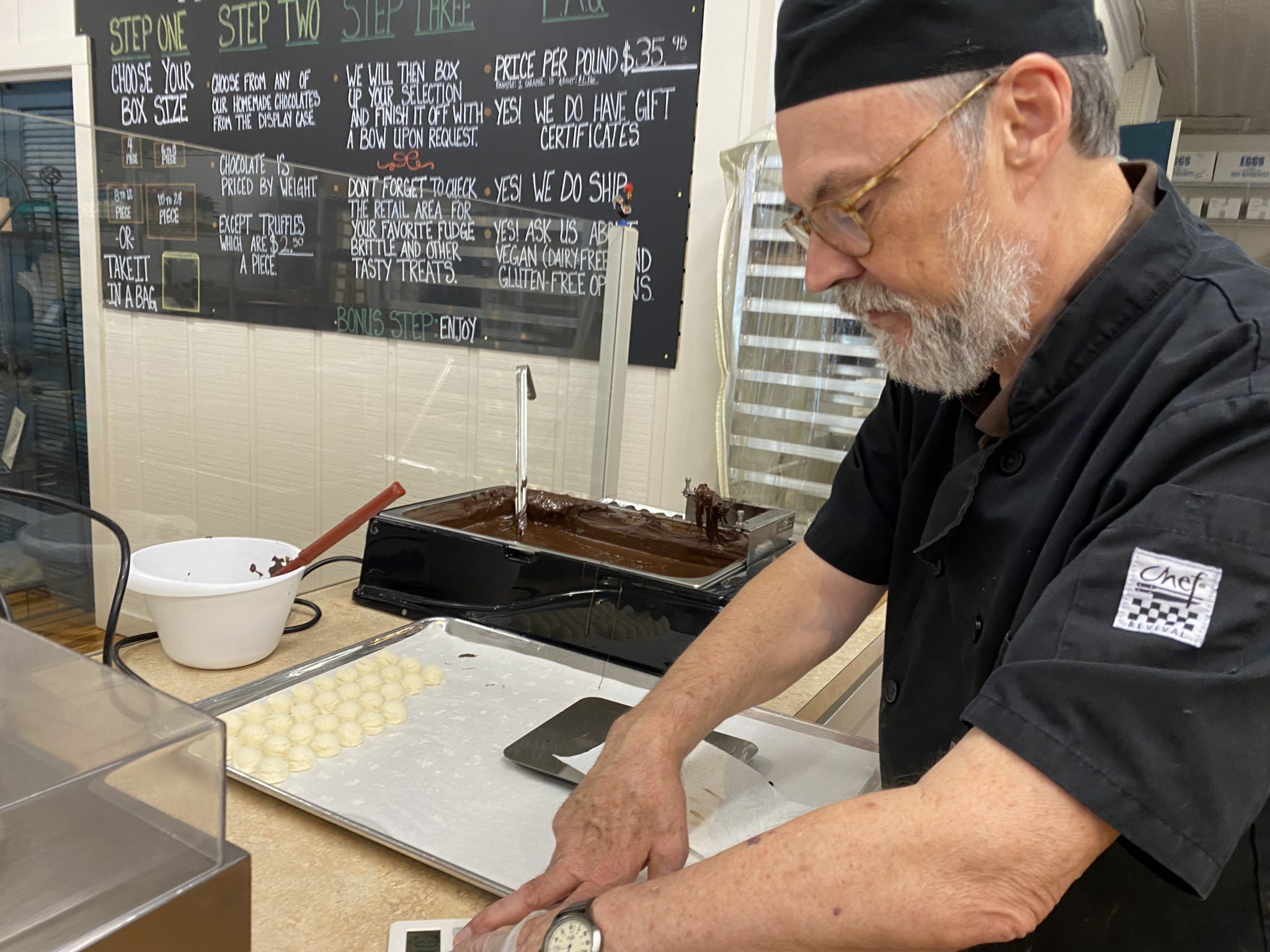

Baxley’s Chocolates opened in 2015, and in 2018 it expanded to its current location. In classes at SCC’s Small Business Center that happened at night or on the weekend, Steve and Lauren learned how to create a business plan (and specifically how to deal with the ups and downs of chocolate demand which is linked to holidays throughout the year), how to market the business, how to sell the idea to investors, and how to develop three-year projections. Steve said they learned “anything that had anything to do with running a small business.”
While peanut butter meltaways and sugarplums might be the family favorites, locals told me to try the malted milk balls and the homemade, hand-cut marshmallows covered in chocolate. And Steve said their hazelnut gianduja rivals those made in Italy!
What makes SCC’s Small Business Center so successful?
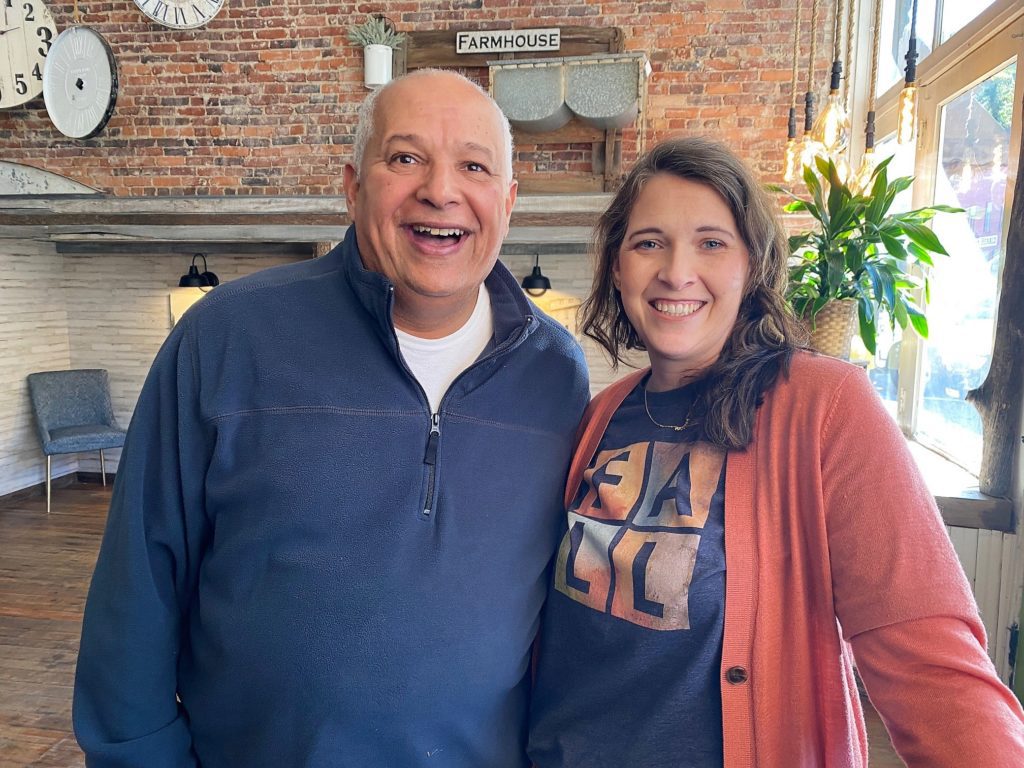

Meet Tiffany Henry.
Henry is the economic development director for Jackson County, but she was the director of SCC’s Small Business Center from 2013-2021. She is also a graduate of SCC and a small business owner. Henry’s leadership was honored by the Small Business Center Network in 2014 for Rookie of the Year, in 2015 for services and collaboration, in 2017 for innovation, in 2018 for state director, and in 2019 for impact.
As Henry looks back on her work with the Center and the role of Small Business Centers across North Carolina moving forward, she offers these seven takeaways for community colleges who want to prioritize working with small businesses:
- The capacity to support strategic planning for small businesses is key to regional economic success.
- Servant leadership matters when it comes to support of small businesses.
- Confidentiality is paramount. Small businesses have to be able to trust you.
- It is hard to balance being out in the community to support small businesses and having the capacity to run the classes and operations of the Center.
- Understanding regional resources and leveraging partnerships for small businesses is important.
- When it comes to long-term success, diversification of revenue has to be a priority for small businesses.
- And, just know, Henry said, you can’t help people until they are ready.
“The community college is such a critical part of our economy,” said Henry. She would know. She has seen that as a student, as director of SCC’s Small Business Center, and now as the county’s economic development director.
Virtually every business in Jackson County is a small business, said Henry: “This is the lifeblood of our economy.”




